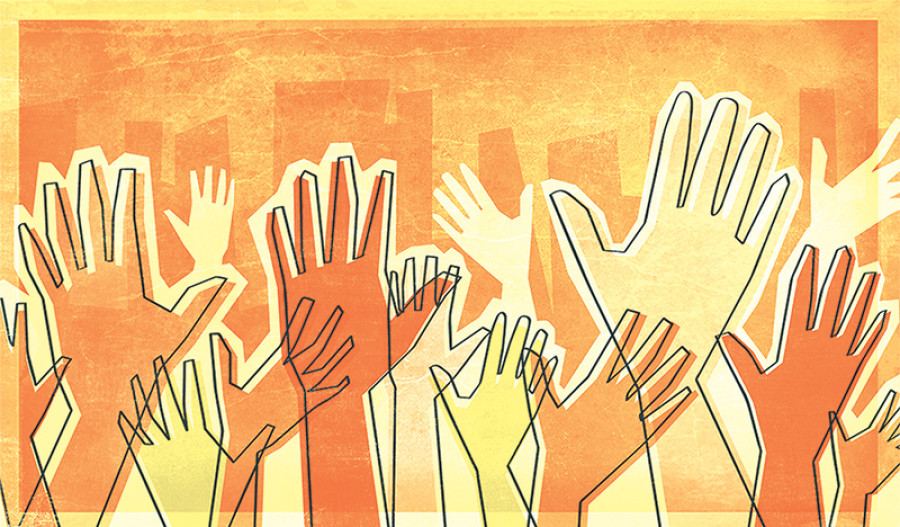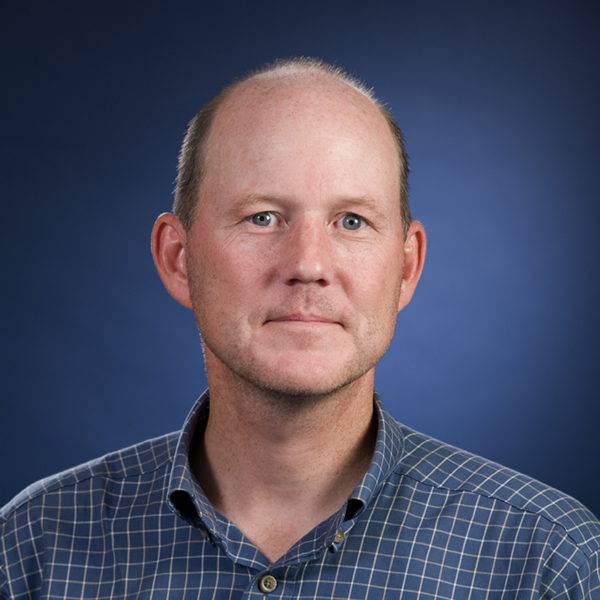Opinion
Democracy as a way of life
Schools have the potential to give citizens the power of self-direction
Thomas (Tom) Robertson
In these days of elections and change in Nepal, I wish we’d hear a lot more about schools. Few institutions have as much power to foster real, long-lasting democracy in Nepal’s many towns and villages—or, sadly, to block it.
Federalism brings a real chance for remaking schools as engines of inclusive growth and broad-based democracy, but it won’t be easy. Similar turning points in the past have been squandered.
Recently I was talking with a friend, a newly elected ward chairman in a rural district. Because he’s someone with a long history of thoughtful democratic advocacy, I was curious to hear his thoughts. What he wanted to discuss, it turned out, was schools.
He asked my advice because in the 1990s, at another moment of democratic restructuring in Nepal, I had worked as a teacher trainer in Nepali schools. And, as a historian of Nepal and the US, I could discuss the political evolution of both countries.
One thought that immediately jumped to mind was New England. Because the religious dissidents who settled this part of north America four hundred years ago believed strongly that each individual should have an unmediated connection to God, rather than depend upon church officials, they taught their children—boys and girls, rich and poor—to read the Bible. A century and a half later, in the years leading up to the American Revolution, this widespread literacy became fertile soil for the spread of anti-monarchial republican sentiment. Meanwhile, in the US South, there was no such tradition of literacy, and education standards there lagged behind for many years, with dire consequences.
Literacy had a different history in Nepal. Here, in order to keep political control, the Ranas had prevented schools. Religious writings were the province of the few, not the right of the many. In 1951, few Nepalis could read or write, except for a priest or shopkeeper here and there.
More than machinery
In thinking about my friend’s query, besides New England’s Bible readers, my thoughts also turned to John Dewey, America’s most significant twentieth-century political thinker and greatest educational innovator. Dewey linked democracy and schools in a way I knew my friend would find important.
I also knew he’d be intrigued by Dewey’s influence on BR Ambedkar, India’s great dalit activist and father of its constitution, who had studied under Dewey at Columbia University. The Dewey-Ambedkar connection is one of two big links between the US and India’s “founding generation.” (The other is Henry David Thoreau’s influence on Mahatma Gandhi.)
Dewey lived and worked in the late nineteenth and early twentieth century, a moment in American political history not completely unlike where Nepal now finds itself. At its break with Britain a century earlier, the US was not a true democracy but rather a republic run by traditional elites. Despite their other virtues, the founding generation had hesitated to grant ordinary people real power. Only white males with property could vote. The Electoral College and the US Senate were representative but not broadly democratic. Hence, in the 1860s, the need for Lincoln’s famous call for expanded democracy—government “of the people, for the people, by the people.” Dewey came of age a couple of decades later, when vast wealth inequality and immigration made elites newly fearful of “the masses.”
Dewey’s big insight: democracy required far more than elections, it had to be a “way of life.” Democratic norms of self-rule should guide not just elections and policymaking but the workplace, the town square, and family life. “To say democracy is only a form of government,” Dewey wrote, “is to say home is a more or less geometrical arrangement of bricks and mortar; that the church is a building with pews, pulpit, and spire. It is true; they certainly are so much. But it is false; they are so infinitely more.” Real democracy demanded not just voting, but a collection of habits and attitudes pervading everyday life. Not just democratic machinery, but a democratic culture.
Representation by elites—the old system—was not enough. Direct participation was needed. More people from more walks of life had to take part in decision-making, to have a say. This reasoning fuelled the long American march for workers’ rights, immigrant rights, women’s rights, and African American rights. This thinking inspired Ambedkar.
But for ordinary people to have a say—to self-govern, the core concept of democracy—they required the skills to do so. And that’s why schools mattered so much.
Cultivating skills
Schools, Dewey know, could prop up hierarchy, or remake society anew. They could reproduce the status quo, or re-form social relations. For the most part, nineteenth-century American schools strengthened elite power, privileging certain races, ethnic groups, economic classes, and genders above others. Fewer than 10 percent of Americans received high school degrees. Methods were mostly rote, even authoritarian. The curriculum stressed the highhanded cultural “Americanisation” of immigrants. In Chicago, where Dewey lived, corruption and patronage crippled the schools.
“When you think of the thousands and thousands of young ones who are practically ruined ... in the Chicago schools every year,” Dewey wrote, “it is enough to make you go out and howl on the street corners.”
With this, I could see my Nepali friend getting excited. He saw the connections. For years, Nepali schools have been unaccountable, un-transparent job-banks for the political parties, outside of community influence. Teaching has stressed memorisation, not critical thinking—docility, not independence. Cheating had taught corruption. Americanisation reminded of the Panchayat era one-size-fits-all cultural engineering. Of course many Nepali teachers, administrators, and government officials strive tirelessly for their students. But too often, Nepali schools reinforce hierarchy, not democracy.
Dewey’s vision was different. Schools didn’t have to reproduce hierarchy. They could serve diverse populations and foster a real culture of democracy. How? By replacing recitation with reflection, memorisation with meaning, competition with collaboration, and passiveness with participation. By stressing creative, cooperative inquiry and scientific investigation. Schools should not be inert museums of “ready-made knowledge” but active “laboratories of knowledge-making.” Truth was not the inherited property of the few but the continually re-invented toolkit of the many. If schools promoted agile thinking, not textbook parroting, they could give citizens the “power of self-direction” and the “ability to assume positions of responsibility.”
Today, American schools and its democracy are very far from perfect. But Dewey’s ideals still pull in the right direction: toward critical thinking, pluralism, and democracy “as a way of life.”
Nepal has a historically large generation of young people. Most study in government schools. Will they acquire the skills needed to make Nepal a democracy not just on election day, but every day?
Robertson is an historian and the executive director of the Fulbright-Nepal office in Gyaneshwor; his views are his own and don’t reflect Fulbright program policy




 22.26°C Kathmandu
22.26°C Kathmandu










